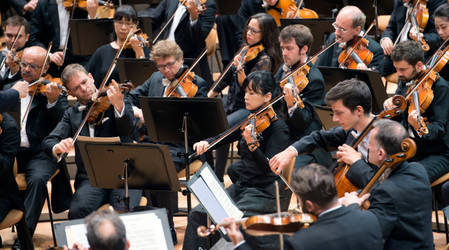
Würth takes on responsibility
For the Adolf Würth GmbH & Co. KG and the Würth Foundation, taking responsibility means protecting the basis of life for present and future generations. With their unrivalled commitment to art and culture, social affairs and education, teaching and research, integration and sport in their own projects as well as in partnerships, both the Adolf Würth GmbH & Co. KG and the Würth Foundation have been committed to the common good and a sustainable society both nationally and internationally for decades.
The Adolf Würth GmbH & Co. KG is the global market leader in the development, manufacture and sale of assembly and mounting materials. The Würth Foundation was founded in 1987 by Prof. Dr h. c. mult. Reinhold and Carmen Würth. It is a foundation with legal capacity in terms of the German Civil Code based in Künzelsau and serves non-profit and charitable purposes.
Prof. Dr h. c. mult. Reinhold Würth, chairman of the supervisory board of the Adolf Würth GmbH & Co. KG, in conversation with Olaf Maninger, principal cellist and media chairman of the Berliner Philharmoniker, and managing director of Berlin Phil Media GmbH
O. M.: Prof. Würth, when and how was your passion for music sparked?
Prof. R. W.: Even as a child, at the age of about six, I was allowed to join my parents on a long business trip to Vienna with all its sights. There was snow. In addition to visiting Schönbrunn Palace and other cultural monuments, the trip also included a visit to the opera. These first vivid encounters and impressions full of music and images may well have awakened a general passion for classical music and art in me. Later on – with my own family – regular visits to concerts and operas, as well as many museums all over the world, were a natural part of our travel schedule. And my wife in particular has always been very fond of Romantic and Classical music. She still sings regularly in a choir.
O. M.: In an interview about visual art in 2021, you said: "Art expresses a lot. It stimulates the mind." Is your personal relationship with music comparable?
Prof. R. W.: I have an enormous soft spot for art, literature, architecture and music. The latter is actually the highest of the arts for me and a particular pleasure. If I can go home with a melody in my ear after a wonderful concert, it has been a particularly good day for me.
O. M.: Your art collection contains around 20,000 works and you operate 15 museums and galleries. With the Würth Philharmoniker, you have created your own orchestra. Now you are supporting the Berliner Philharmoniker's Digital Concert Hall – what role does the support of art and culture play in your life?
Prof. R. W.: Property entails obligations! On the one hand, it gives me and my company the opportunity to assume social responsibility and give something back to the people. Admission to our 15 museums and art galleries in Europe is free, and anyone interested in art is very welcome. Our concerts are fully booked, there is a long list of subscribers and after almost eight years, the Würth Philharmoniker is an indispensable presence in the Hohenlohe region of Baden-Württemberg. The audience comes from a radius of 150 to 200 kilometres and the concerts often combine music with art and culinary delights and vice versa. I am delighted that we can make such a contribution to the cultural landscape of southern Germany. I see the support for the Digital Concert Hall in a similar context: by allowing concerts to be enjoyed beyond the concert halls, many more people can be reached directly and listen to wonderful music in this way.
O. M.: Social commitment to a vibrant cultural landscape is a key concern for you – high culture is at the centre of this. To what extent does culture enrich our society?
Prof. R. W.: Education and culture are cornerstones of a functioning society and remain key pillars of our democracy.
O. M.: Is the role of the head of a successful company in some way comparable to that of a conductor?
Prof. R. W.: (laughs) In fact, I used to imagine myself conducting a large philharmonic orchestra from time to time. I am often fascinated by the extent to which the different parts and instruments in an orchestra can merge into a harmonious body of sound under the direction of its conductor. In every successful organisation, exactly the same harmony is achieved when everyone is pursuing the same goal and playing together. I can imagine that many bosses feel the same way.
O. M.: You often talk about the entrepreneurial in art and the artistic in entrepreneurship. How do you see the connection between the two worlds?
Prof. R. W.: I like to agree with our former German Chancellor Ludwig Erhard, who once said: "The economy is not everything, but without the economy everything is nothing." Both areas, culture and business, need each other. I am glad that my company can make a contribution to economic growth as well as to art and culture.
O. M.: You often talk about gratitude, now it's our turn to thank you!